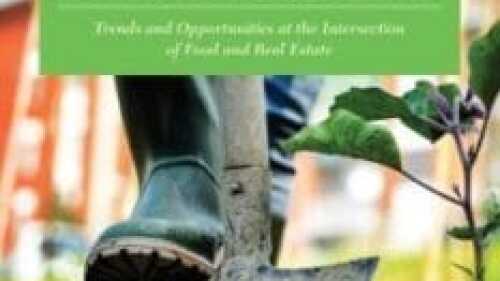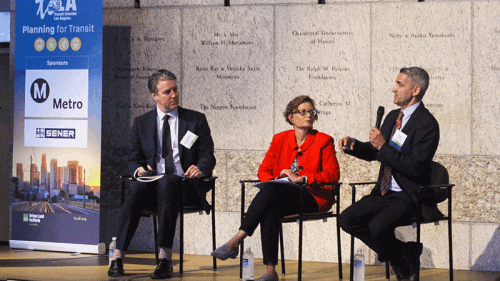Emerging Trends
Why are food and agriculture becoming more important parts of real estate development projects? Attendees at a session at the 2016 ULI Fall Meeting in Dallas learned that growing, processing, and selling food in development projects can pay big dividends for savvy developers as well as for consumers, communities, and the environment.
During a session at the 2016 ULI Fall Meeting, panelists involved in the ULI Healthy Corridorsproject discussed strategies for transforming unsafe, unattractive, and poorly connected commercial corridors into thriving places that further the goal of creating healthy and economically vibrant communities.
During the opening session of the 2016 ULI Fall Meeting in Dallas, executives of three large companies explained why they chose north Texas for new headquarters projects: affordable housing and a strong local economy.
This session at ULI Los Angeles conference provided an unusual opportunity to hear two of L.A.’s key planners discuss their attitudes, priorities, and philosophies, and offered a glimpse into the future of L.A. development as they addressed the myriad issues facing the city.
A Gathering Place for Tulsa, under construction along the eastern bank of the Arkansas River two miles (3.2 km) south of downtown, is one of the biggest greenway projects under development from scratch in the United States.
New tech habits spur demand for creating privacy in open-plan homes.
Transparency in the global real estate sector has improved markedly, according to a recent report produced by JLL and LaSalle Investment Management, with the ten most transparent countries taking 75 percent of global investment volumes.
Homebuyers and developers have developed an appetite for more food-based amenities, said panelists speaking at a recent ULI Food & Real Estate Forum. “One of the hottest trends in new home development is incorporating agriculture … communities that include working farms are popping up all over the country,” says Sarene Marshall, executive director of the ULI Center for Sustainability.
Even as the broader equity markets fell, real estate investment trusts posted positive returns as economic uncertainty once again took center stage. The Federal Reserve Board’s decision not to raise interest rates this month was good news for REITs in terms of keeping their cost of capital low, but also reflected some weak economic news that could mean economic growth is faltering. Plus, interest rate survey data from Trepp.
“Urban living is one of the key drivers of unsustainability,” said Ed Groak, chairman of the Worldwatch Institute, at the recent launch of the 2016 State of the World report, Can a City Be Sustainable?Despite the many challenges, the report indicates that the answer is yes.







